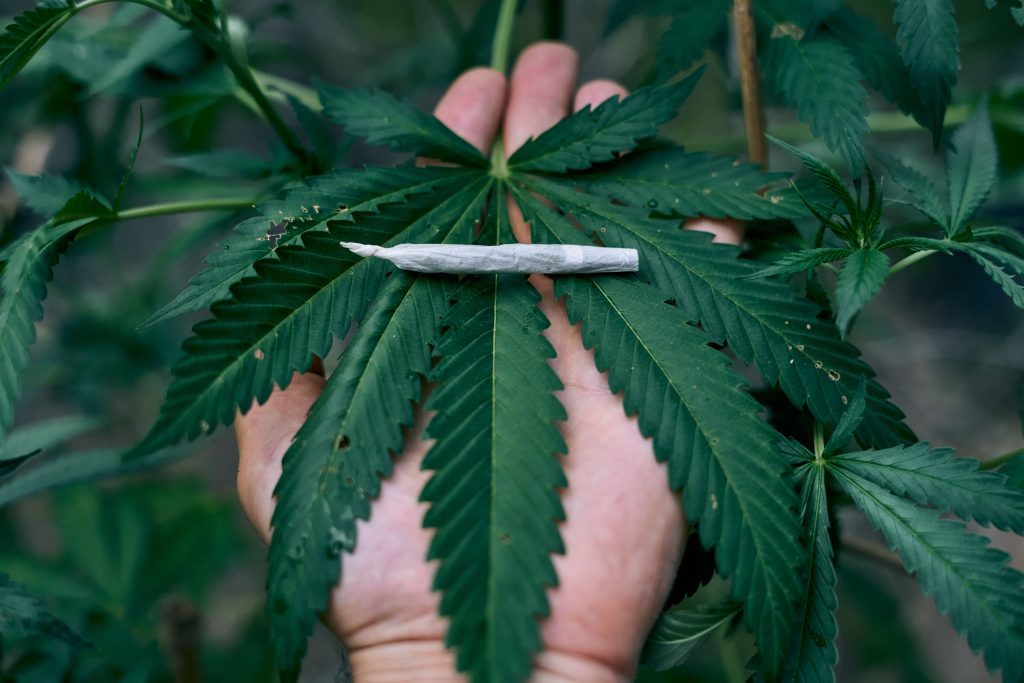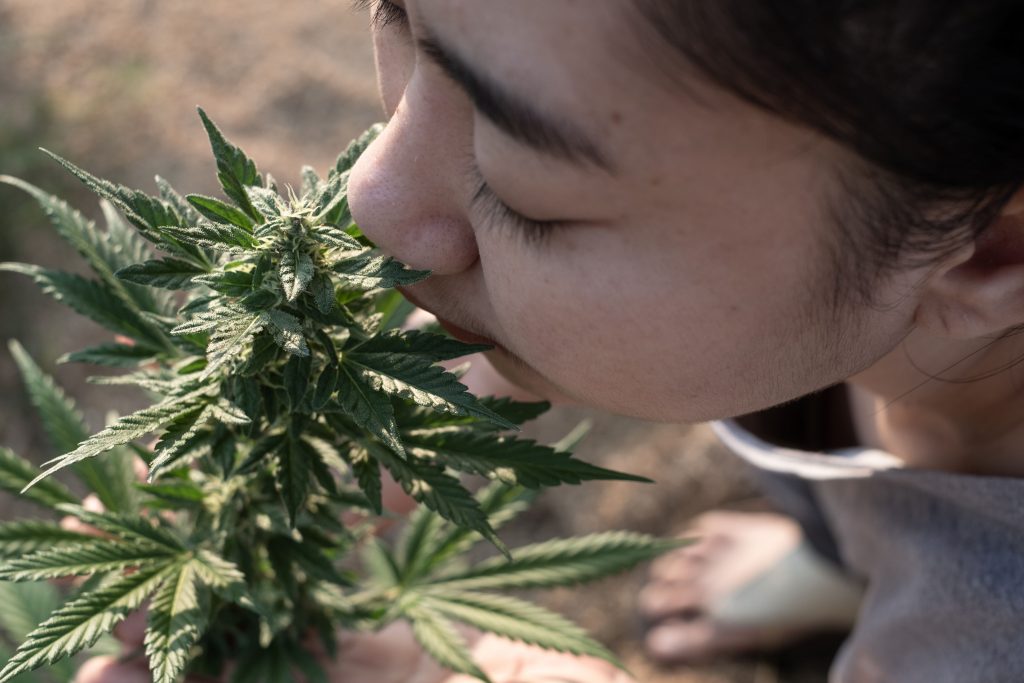There is a growing interest in the relationship between cannabis and mental health. While some claim it can provide therapeutic benefits, others are concerned about its potential negative impact. With so much conflicting information, it’s crucial to navigate this connection with care and understanding.
Cannabis, also known as marijuana or weed, remains a controversial topic due to its psychoactive effects. However, recent research has shed light on its potential medicinal properties and its influence on mental health. It’s important to recognize that this is a complex and nuanced relationship that requires careful exploration.
In order to have an informed understanding of the connection between cannabis and mental health, it’s vital to examine both the potential benefits and risks. By exploring the current research and expert insights, we can gain a clearer perspective on how this widely-used substance may impact our mental well-being.
Cannabis and Mental Health: The Complex Interplay
Cannabinoids, the active compounds in cannabis, interact with the endocannabinoid system, which plays a crucial role in regulating various physiological processes in the body, including mood, memory, appetite, and pain sensation. The endocannabinoid system consists of cannabinoid receptors (CB1 and CB2) and endocannabinoids, which are lipid molecules that bind to these receptors.
The potential impact of cannabis on neurotransmitters and mood regulation is complex. Research suggests that cannabinoids may modulate neurotransmitter activity, such as serotonin and dopamine, which are involved in mood regulation. This may explain why some individuals report feeling euphoric or relaxed after using cannabis.
However, the effects of cannabis on mental health are not uniformly positive. While some users experience temporary relief from anxiety and depression, others may experience exacerbation of these symptoms, as well as increased risk of developing psychotic disorders. Long-term and heavy cannabis use has been linked to cognitive impairments, such as memory and attention deficits.
Positive Effects on Mental Health
Promoting mental well-being is essential for overall health and happiness.
Anxiety and Stress Reduction
Cannabis contains specific cannabinoids such as CBD (cannabidiol) and THC (tetrahydrocannabinol) that are known for their anxiolytic properties, meaning they have the ability to reduce anxiety and stress. Studies have shown that CBD can interact with the body’s endocannabinoid system, which plays a crucial role in regulating emotions and stress responses. THC, on the other hand, has been found to have anxiolytic effects, although it can also induce feelings of euphoria and relaxation.
Testimonials from individuals who have used cannabis for stress relief often report feeling a sense of calm and relaxation after consumption. Many also claim that cannabis helps them manage their anxiety and promotes better sleep, which is vital for managing stress. Furthermore, numerous studies have supported the use of cannabis for stress relief, with findings indicating that cannabinoids can modulate the brain’s stress response and reduce the symptoms of anxiety.
Mood Enhancement
Cannabis strains containing high levels of specific cannabinoids, such as cannabidiol (CBD) and tetrahydrocannabinol (THC), have shown potential antidepressant effects. CBD is known for its anti-inflammatory and anxiolytic properties, which may positively impact mood by reducing symptoms of anxiety and stress. Additionally, CBD has been suggested to enhance the effects of serotonin, a neurotransmitter often associated with mood regulation. On the other hand, THC, when consumed in moderate amounts, may also contribute to mood enhancement by promoting relaxation and euphoria.
Furthermore, some cannabis strains are bred specifically to contain higher levels of certain cannabinoids that can positively impact mood. For example, strains with high levels of the terpene limonene may have uplifting and mood-enhancing effects. Limonene is commonly found in citrus fruits and has been linked to potential benefits in reducing stress and improving mood.
Sleep Improvement
Sleep improvement is a common concern for many individuals, with sleep disorders such as insomnia affecting a large portion of the population. As researchers continue to explore potential treatment options, there is growing interest in the role of cannabis and cannabinoids in managing sleep disorders.
Cannabis contains various compounds, including cannabinoids like THC and CBD, which have shown potential in promoting better sleep. Studies have suggested that THC may help individuals fall asleep faster, while CBD may aid in improving overall sleep quality and reducing the frequency of wakefulness during the night.
Additionally, the endocannabinoid system, which is involved in regulating various physiological processes, including sleep, has become a focus of research in understanding how cannabis may impact sleep patterns.
While the research on cannabis and sleep is still ongoing, early findings suggest that certain cannabinoids may offer potential benefits for individuals struggling with sleep disorders. However, it is important to note that the use of cannabis for sleep should be approached with caution, as individual responses to cannabinoids can vary, and there may be potential risks associated with long-term use.
Overall, as the understanding of cannabinoids and their potential role in sleep improvement continues to evolve, further research and clinical trials are needed to fully determine the effectiveness and safety of cannabis as a treatment for sleep disorders.
Risks and Challenges
When navigating any venture or endeavor, it is essential to consider the potential risks and challenges that may arise. Identifying these factors allows for proper preparation and mitigation strategies to be put in place.
Psychosis and Schizophrenia
There is a growing body of research suggesting a potential link between cannabis use and the development of psychosis, including schizophrenia. Several studies have indicated that heavy and long-term use of cannabis may increase the risk of developing psychosis, particularly in individuals who are already predisposed to mental health issues or have a family history of schizophrenia.
One of the identified risk factors is the age of onset of cannabis use, with early and frequent use during adolescence being associated with a higher risk of psychosis later in life. Additionally, genetic vulnerability, childhood trauma, and other environmental factors may also play a role in increasing the susceptibility to cannabis-induced psychosis.
Certain populations, such as individuals with a history of trauma, those with a family history of schizophrenia, and those with a predisposition to mental health disorders, may be more vulnerable to the potential effects of cannabis on psychosis.
It is important to consider these risk factors and vulnerable populations when addressing the potential links between cannabis use and psychosis, and to continue researching and raising awareness of these potential correlations to effectively address and mitigate the potential risks.
Addiction and Dependence
Cannabis use disorder is a potential concern for individuals who use cannabis, particularly if use becomes problematic or leads to dependence. Risk factors for cannabis use disorder include genetic predisposition, early exposure to cannabis, and co-occurring mental health problems. It is also important to consider the potency of cannabis products and patterns of use, as these can contribute to the development of dependence.
Responsible use of cannabis can help mitigate the risk of developing a cannabis use disorder. This involves using cannabis in moderation, avoiding high-potency products, and being mindful of the impact of cannabis on mental and physical health. It is also important to seek support and treatment if problematic cannabis use is identified.
Education and awareness about the potential for cannabis use disorder can help individuals make informed decisions about their cannabis use. By understanding the risk factors and practicing responsible use, individuals can reduce the likelihood of developing a cannabis use disorder. Additionally, access to resources for treatment and support is crucial for addressing cannabis use disorder and promoting overall well-being.
Individual Variances: Cannabis and Mental Health
Individual responses to cannabis can vary widely, especially when it comes to its impact on mental health. Several factors can influence how cannabis may affect individuals differently.
Genetics play a significant role in determining how an individual responds to cannabis. Some people may have genetic variations that make them more susceptible to the negative effects of cannabis on mental health, such as increased anxiety or paranoia.
Personal history and experiences also play a crucial role in how cannabis affects mental health. Individuals with a history of mental health issues, such as anxiety or depression, may be more vulnerable to the negative effects of cannabis on their mental well-being.
Dosage and method of consumption can also influence how cannabis affects mental health. Higher doses or more potent forms of cannabis may lead to stronger or more adverse effects on mental health.
Lastly, individual differences in brain chemistry and function can impact how cannabis affects mental health. Factors such as neurotransmitter levels and receptor sensitivity can contribute to the variability in responses to cannabis.
Overall, the variability in individual responses to cannabis and its impact on mental health highlights the importance of considering these factors when consuming cannabis, especially for those with pre-existing mental health concerns.

Responsible Consumption Practices
Responsible cannabis consumption is important for the wellbeing of both the individual and the community. It is crucial to be mindful of the impact of cannabis on mental health and to seek professional advice if needed. Users should be aware of their own limits and use cannabis in moderation. It is also important to be mindful of the environment and others when consuming cannabis, by following local laws and regulations, and being considerate of those around you.
When using cannabis, it is important to be informed about the potency and effects of the product, and to choose strains that align with your personal needs and preferences. Additionally, it is vital to consume cannabis in a safe and responsible environment, and to never operate a vehicle or heavy machinery while under the influence.
Cannabis users should also be conscious of the potential for dependence and addiction, and seek help if they feel their cannabis use is becoming problematic. Prioritizing mental health and making informed choices about cannabis consumption is essential for responsible and mindful use. By being aware of the impact of cannabis on mental health and taking proactive steps to ensure responsible consumption, individuals can enjoy the benefits of cannabis while minimizing potential risks.
Exploring Exotic THCa Flower: A Unique Perspective
Exotic THCa Flower is a unique form of cannabis that has been gaining attention for its potential role in mental health. Unlike traditional cannabis flower, Exotic THCa Flower contains high levels of tetrahydrocannabinolic acid (THCa), which is known for its non-psychoactive properties. This makes it an appealing option for those looking to explore the potential benefits of cannabis without experiencing the intoxicating effects often associated with THC.
The unique properties of Exotic THCa Flower set it apart from other forms of cannabis. It has been found to have anti-inflammatory, neuroprotective, and antiemetic properties, making it a promising option for those managing mental health conditions such as anxiety, depression, and PTSD.
For those interested in exploring Exotic THCa Flower, there are considerations to keep in mind. It’s important to understand the legal regulations surrounding THCa products in your area, as well as consulting with a healthcare professional to determine if it may be a suitable option for addressing your mental health needs.

Conclusion
In conclusion, the complexities of the cannabis and mental health connection underscore the importance of making informed decisions and seeking professional advice. While some research suggests potential benefits of cannabis for mental health conditions, there are also risks and complexities to consider. It is crucial for individuals to have open discussions with healthcare professionals to understand how cannabis may impact their mental well-being. For those interested in exploring a distinctive cannabis experience, Exotic THCa Flower may offer a unique avenue. This high-quality, unprocessed cannabis product has gained attention for its potential therapeutic properties and diverse cannabinoids. However, as with any cannabis product, it is essential for individuals to approach it with caution and consider their own mental health needs before making decisions. With careful consideration and professional guidance, individuals can navigate the complexities of the cannabis and mental health connection in a way that prioritizes their well-being.

